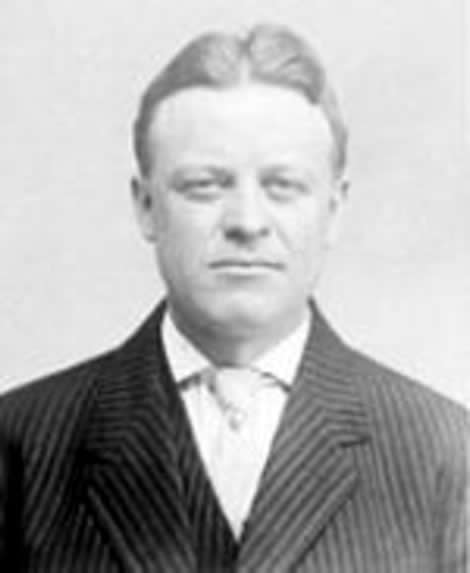The press was to call him the Dean of Chicago Gunmen, and Al Capone used him for dozens of murders, with never a complaint. In fact, Walter Stevens probably killed more members of the Spike O'Donnell Gang for Capone than any other gunner.
Stevens started his career as a professional killer some time around the turn of the century. He once did a killing as a favor for a mere $50, and on another occasion a "half a killing" for just $25. Stevens became an honored slugger and killer for Mossy Enright in his union-busting operations. When Enright was murdered in 1920, Stevens started renting out his guns to other mob leaders, and he soon became a favorite of Johnny Torrio and Capone.
In all, Stevens is believed to have committed at least 60 murders. Direct evidence linked him to at least a dozen murders, but since his activities were centered in Chicago and Illinois, it went without saying most of the evidence never led to any prosecutions. In fact, Stevens only went to prison for one murder, that of a policeman in Aurora, Illinois.
  |
But the conviction didn't amount to much. Len Small, then the governor of the state, was himself indebted to Stevens for some past mayhem. Having some years earlier been charged with embezzling more than a half-million dollars while state treasurer, Small remembered Stevens's part in bribing jurors and threatening others to achieve an acquittal. Now Small pardoned Stevens.
As mean and deadly as Stevens was in his professional life, he was a bit of a pussycat at home. Very well educated and read, he was fully conversant on the works of Robert Burns, Robert Louis Stevenson and Jack London. This was very highbrow among the Capones. He neither smoked nor drank, and for 20 years took loving care of an invalid wife.
Stevens adopted three children and saw that all received excellent educations. He was very prudish as a father and censored the children's reading material, ripping out pages of books he thought immoral. The children could only attend stage plays and movies that met his puritanical standards. His daughters were not to travel down the road to degradation by wearing short skirts or lipstick and rouge.
Stevens got out of the killing business in the late 1920s when, for the first time, an attempt was made on his life. After that, members of the underworld would say of him—although never to his face—that he was like Johnny Torrio: "He could dish it out, but he couldn't take it."
Stevens would more realistically put it that he had beat the odds longer than most hit men, and it was time to hang up his guns.
